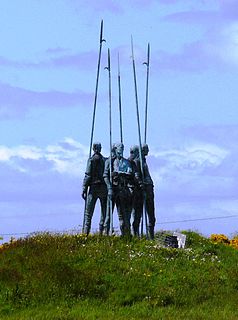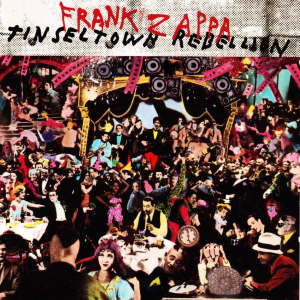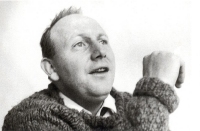"Croppies Lie Down" is a British anti-Irish folksong dating from the 1798 rebellion in Ireland celebrating the defeat and suppression of the Irish by the British. The author has been reported as George Watson-Taylor.

The John Fries Rebellion, also called Fries's Rebellion, the House Tax Rebellion, the Home Tax Rebellion and, in Deitsch, the Heesses-Wasser Uffschtand, was an armed tax revolt among Pennsylvania Dutch farmers between 1799 and 1800. It was the third of three tax-related rebellions in the 18th century United States, the earlier two being Shays' Rebellion and the Whiskey Rebellion. It was commemorated in 2003 with a Pennsylvania historical marker erected in Quakertown, Pennsylvania, where it first erupted.

The Irish Rebellion of 1798 was an uprising against British rule in Ireland from May to September 1798. The United Irishmen, a republican revolutionary group influenced by the ideas of the American and French revolutions, were the main organising force behind the rebellion. It was led by Presbyterians angry at being shut out of power by the Anglican establishment, joined by Catholics, who made up the majority of the population. Many Irish Ulster Protestants sided with the British, resulting in the conflict taking on the appearance of a sectarian civil war in many areas, with atrocities on both sides. A French army which landed in County Mayo in support of the rebels was overwhelmed by British and loyalist forces. The uprising was suppressed by British Crown forces with a death toll of between 10,000 and 30,000.

Henry Joy McCracken was an Irish Republican and industrialist from Belfast, Ireland. He was a founding member of the Society of the United Irishmen.
John Kelly lived in the town of Killanne in the parish of Rathnure and was a United Irish leader who fought in the Irish Rebellion of 1798.
Cheri Keaggy is a gospel singer and songwriter, with a musical style of Contemporary Christian music. She is now divorced from her high school sweetheart Eddie Keaggy, the nephew of the CCM pioneer artist, Phil Keaggy.

An Góilín Traditional Singers' Club is a traditional singing club in Dublin, Ireland. Founded in 1979 by Dónal de Barra and his brother-in-law, Tim Dennehy, the club serves as a meeting place for those who want to sing and listen to traditional songs. Songs are sung without instrumental accompaniment.
"The Wind That Shakes the Barley" is an Irish ballad written by Robert Dwyer Joyce (1836–1883), a Limerick-born poet and professor of English literature. The song is written from the perspective of a doomed young Wexford rebel who is about to sacrifice his relationship with his loved one and plunge into the cauldron of violence associated with the 1798 rebellion in Ireland. The references to barley in the song derive from the fact that the rebels often carried barley or oats in their pockets as provisions for when on the march. This gave rise to the post-rebellion phenomenon of barley growing and marking the "croppy-holes," mass unmarked graves into which slain rebels were thrown, symbolizing the regenerative nature of Irish resistance to British rule. As the barley will grow every year in the Spring time of the year this is said to symbolize Irish resistance to British oppression and that Ireland will never yield and will always oppose British rule on the island.
Grand Union was released in 1991. The album was recorded at Sawmills Studio in Cornwall and at WW1, Harrow Road, London.
Events from the year 1767 in Ireland.
Events from the year 1798 in Ireland.

The Wexford Rebellion refers to the outbreak in County Wexford, Ireland in May 1798 of the Society of United Irishmen's Rising against the British domination of Ireland. It was the most successful and most destructive of all the uprisings that occurred throughout Ireland during the 1798 Rising, lasting from 27 May 1798 until about 21 June 1798. The Wexford Rebellion saw much success despite County Wexford not being thought of as an immediate threat by the government, because of the spontaneous risings that occurred both before and after the significant rebel victories in Oulart, Enniscorthy, and Wexford town.

Tinsel Town Rebellion is a double live album released by Frank Zappa in May 1981. The album was conceived by Zappa after he scrapped the planned albums Warts and All and Crush All Boxes, and contains tracks that were intended for those albums.

"What She's Doing Now" is a song co-written and recorded by American country music singer Garth Brooks. It was released in December 1991 as the third single from his album Ropin' the Wind. It spent four weeks at the top of the Billboard Hot Country Singles & Tracks chart. It was co-written by Pat Alger.

Dublin Street Songs and Through Dublin City are LPs of mostly traditional Irish songs by Frank Harte. Dublin Street Songs was Frank Harte's first LP recording in 1967, having been recorded in two days earlier that year by Bill Leader in the UK at the same time as the tracks that were to become Through Dublin City, which was issued on the Topic label in 1973.
"Come All You Warriors" is a ballad concerning the 1798 Rising. The narrative focuses on the predominant figure in the Wexford Rising, Father John Murphy of the parish of Boulavogue.
'Jimmy Murphy' also known as 'Little Jimmy Murphy' is a song, possibly of music-hall origin, referencing the 1798 rebellion, which occurred largely in Wexford.
"Foggy Dew" is the name of several Irish ballads, and of an Irish lament. The song chronicles the Easter Uprising of 1916, and encourages Irishmen to fight for the cause of Ireland, rather than for the British Empire, as so many young men were doing in World War I.











